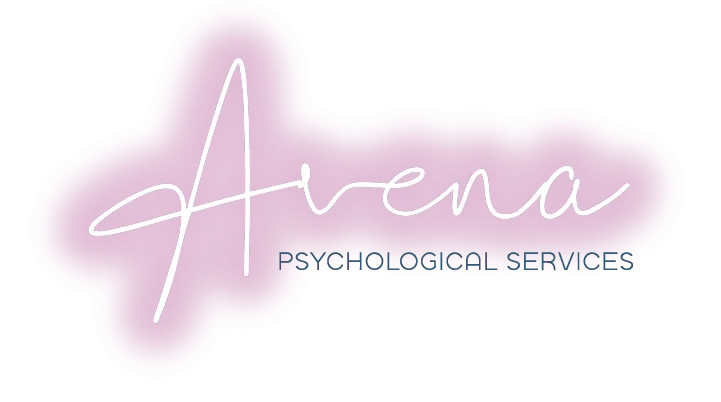You forgot to send the email. You burned the toast. You snapped at someone you love. And now your brain feels like a browser with twenty tabs open—all buffering.
If you’ve ever felt that rising panic, that sinking tightness in your chest, that I can’t keep up ache in your body, you’re not alone.
This is what we call feeling out of control—and while it can be uncomfortable (and sometimes terrifying), it’s also incredibly human.
At Avena Psychological Services, we work with people every day who are trying to hold it all together, only to feel like it’s slipping through their fingers. The good news? That sensation of chaos isn’t a sign you’re failing. It’s a sign something in you is asking to be heard.
Let’s take a deeper look at what feeling out of control really means—and what you can do when everything feels like too much.
What does it mean when you feel out of control?
First of all: if you’re feeling out of control, it doesn’t mean you’re weak, lazy, or doing something wrong. It means you’ve hit a limit. Mentally. Emotionally. Physically.
Feeling out of control can look like:
- Snapping at people you love, even though you don’t mean to
- Racing thoughts, brain fog, or forgetting simple things
- Losing track of time or feeling like the days are a blur
- Crying over something small—because everything feels heavy
- Feeling disconnected from your body or like you’re watching your life from the outside
It might happen during major life changes—like a breakup, job loss, or health scare. Or it might sneak up slowly from chronic stress, burnout, people-pleasing, or just trying to do too much for too long.
Either way, feeling out of control is your body and mind waving a red flag. It’s not failure. It’s feedback. And the message is this: You need something.
Maybe rest. Maybe clarity. Maybe help. Maybe all three.
What to do when you feel like you have no control over your life?
When feeling out of control spirals into I have no control over my life, it can be paralyzing. But here’s the truth: you don’t need to get your entire life “together” to feel grounded. You just need one small place to start.
Try this:
- Find something small you can control. That might be making your bed, choosing what to eat, or deciding when to take a walk. These tiny anchors remind you that you do have agency—even in chaos.
- Get out of your head and into your body. Movement, breathwork, stretching, or even holding something cold can help regulate your nervous system.
- Write it down. Brain-dump all the things you’re holding. Seeing them on paper can help you separate what’s urgent from what’s just noise.
- Set one boundary. Say no to something that drains you—even if it’s just a notification or a conversation you’re not ready for.
- Ask for help. Text a friend. Reach out to a therapist. You’re not meant to carry it all alone.
At Avena, we remind our clients that reclaiming a sense of control isn’t about micromanaging everything. It’s about creating safety inside yourself—one breath, one choice, one moment at a time.
How to stop feeling all over the place?
Let’s be real: there are times when it feels like your brain is spaghetti. No clear thoughts. No clean lines. Just tangled noise.
So how do you stop feeling all over the place?
Here’s where to start:
- Name it. Say (out loud or in a journal), “I’m feeling out of control.” That simple act creates a moment of mindfulness—a pause in the spiral.
- Pick one thing to focus on. Not the whole to-do list. Just the next right thing. That could be brushing your teeth, answering one email, or drinking some water.
- Limit the input. The more overwhelmed you feel, the less you need from the outside world. Turn off the news. Mute the group chat. Let your brain breathe.
- Breathe into your body. Try box breathing (inhale 4, hold 4, exhale 4, hold 4). It calms your nervous system and helps reset your brain.
- Be kind to yourself. You’re not “lazy” for struggling. You’re likely exhausted from carrying too much for too long.
When you’re feeling out of control, the goal isn’t to “fix” yourself—it’s to ground yourself. You don’t have to have it all together. You just have to stay connected to yourself in the moment.
And if that’s hard to do alone? That’s what therapy is for. At Avena Psychological Services, we create safe spaces for untangling the mess—without judgment, pressure, or shame.
What is a sense of loss of control?
A sense of loss of control is more than a bad day. It’s when you feel like life is happening to you, not with you. It’s when the usual tools don’t work anymore. When your routines crumble, your emotions overwhelm you, and even small tasks feel like mountains.
This might come after:
- A traumatic event
- Long-term burnout
- A global crisis (like a pandemic or political unrest)
- Constant caregiving with no support
- Major transitions, like divorce or job changes
When you experience a sense of loss of control, you may feel:
- Powerless
- Unstable or unsafe
- Detached from your identity
- Like you’re constantly bracing for impact
This is often the body’s way of protecting itself after too much has happened. It’s not weakness—it’s survival. But staying in that state for too long can lead to anxiety, depression, or even physical health issues.
The path back isn’t about forcing control. It’s about restoring your sense of safety. That might look like:
- Creating small, predictable routines
- Finding one person who feels like a safe space
- Moving your body gently, daily
- Reconnecting with activities that remind you of who you are
And most of all? Giving yourself permission to not be okay—and to seek help when you need it.
Final Thoughts: You’re Not Broken—You’re at Capacity
If you’re feeling out of control, it doesn’t mean you’ve failed. It means your nervous system, your mind, or your emotions are at capacity. And they’re trying to tell you something.
That message might be:
I’m exhausted.
I’m grieving.
I need a break.
I’m scared and I don’t know how to say it.
Whatever the message is, it deserves to be heard. Gently. Without judgment.
At Avena Psychological Services, we believe everyone deserves support in the moments they feel most overwhelmed. Whether you’re unraveling after a big event or just trying to hold on during an endless season of stress—we’re here.
Therapy isn’t about making you “tougher.” It’s about giving you space to process, to pause, to breathe—and to build back a sense of groundedness that doesn’t depend on the chaos outside of you.
You don’t need to do it all.
You don’t need to feel okay all the time.
You just need a place to be human—and that’s exactly what we offer.
So if you’re feeling out of control, start here. Start small. Start now. And know that even in the messiest moments, you are still worthy of care.
Meet The Therapists You'll Work With & Get Scheduled Today!

Michael Cruz, LMHC
Licensed Mental Health
Counselor – NY

Luisa Enriquez, LSW
Licensed Social Worker – NJ

Katalin Vinczi-Sierra, LCSW
Licensed Clinical Social Worker – NJ
Contact us to schedule an appointment with a professional in New York or New Jersey.

